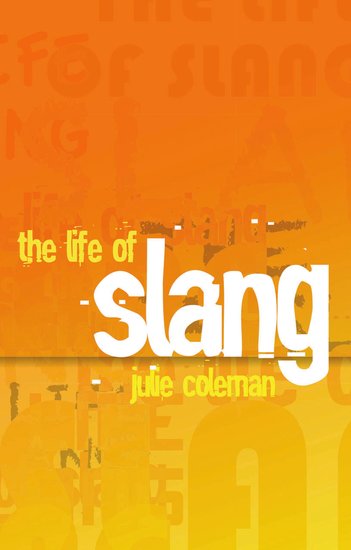By Julie Coleman
My students are mostly white, middle-class, and female, but their slang is heavily influenced by rap culture. They chillax with their bloods and homies, dissing the skanky hos, expressing props to the players and pimping up their whips. Comparison with hippy slang suggests that it’s only a matter of time before they’re not the only ones using these terms.
In 1973, Operation Homecoming brought 591 US POWs back from Vietnam after up to 8 years in captivity. The US Air Force compiled a list of slang terms to help these returning POWs “to get … off to a somewhat of an equal start” with their teenage children. Almost forty years have now passed, and as you might expect, some of the slang listed is as dated as 1970s clothes and music. While we might still refer to a bad scene or a be-in, it would almost certainly be ironically or in deliberate representation of the period. Today’s cats are less likely to rap about what bag they’re into and what they’re down on than once they were.
Nothing new under the sun
Not everything in the POW glossary was particularly new. For example, beautiful (since 1855) and right on (since 1911) had long been used as exclamations of approval and agreement. Other well-established terms on the list include to get into “to become interested in” (1712), to pull oneself together “to recover one’s self-control” (1868), dope “drugs, specifically marijuana” (1888), out of sight “excellent” (1891), where it’s at “the true state of affairs” (1903), hip “well-informed” (1904), brother “an African-American man” (1910), gas “fun; amusement” (1914), dude “a man” (1918), straight “heterosexual” (1919), gay “homosexual” (since at least 1941), and heavy “profound” (1924). It may be that these were recent additions to youth slang, which would justify their inclusion on the list, but they may not have seemed new to African-American POWs.
Some things endure
Most of the terms that really were new in the POW glossary are also still in informal use today, including drugs terms such as acid “LSD” and grass “marijuana”. Blow one’s mind “to be overcome by an experience”, bummer “an unpleasant experience”, and zonked “high; drunk; tired” have all broadened in meaning so that they no longer necessarily refer to drugs. More general terms are also still used, including to blow one’s cool “to lose one’s self-control”, to cop out “to refuse to acknowledge an issue or responsibility”, to do one’s own thing “to express one’s own personality and interests”, get it together “to organize oneself”, into “interested in”, rip off “to steal or cheat”, shades “sunglasses”, split “to leave”, and vibes “intuitions; atmosphere”. Some of what seemed to be slang in 1973 is now in more or less standard usage, including Afro (the hair-style), burned out “physically or mentally exhausted”, ego-trip “a period of time or activity devoted to self-interest”, hippy “a long-haired left-winger”, tell it like it is “to speak frankly”, turn on/off “to arouse/repel sexually”, and uptight “upset, inhibited”.
Do you know where it’s at?
In 2042, it’s likely that a lot of today’s rap slang will still be in use as ever wider circles of people attempt to demonstrate that they know where it’s at. Any slang that has had time to fall from use will have been revived in nostalgic films and cover versions, and some terms will have become more or less Standard English. Meanwhile, parents will still be complaining that they can’t understand their teenage children, because that is, after all, an important part of what youth slang is all about.
Julie Coleman is Professor of English Language at the University of Leicester. Her Life of Slang was published in the US by OUP in May 2012. Watch Julie Coleman’s previous video interviews. Dates and definitions in this article are from the Oxford English Dictionary and Green’s Dictionary of Slang. This article originally appeared on the OxfordWords blog.
Subscribe to the OUPblog via email or RSS. Subscribe to only dictionaries, language, lexicography, etymology, and word articles on the OUPblog via email or RSS.
View more about this book on the ![]()
![]()




Recent Comments
There are currently no comments.